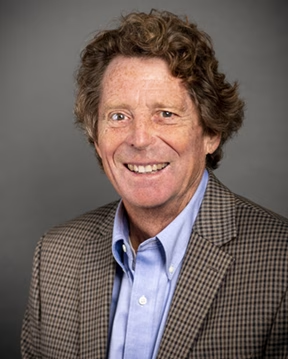The latest interview in the Ole Miss Retirees features Bill MacKenzie, the former Energy Coordinator at Ole Miss. The organization’s mission is to enable all of the university’s faculty and staff retirees to maintain and promote a close association with the university. It is the goal of the Ole Miss Faculty/Staff Retirees Association to maintain communication by providing opportunities to attend and participate in events and presentations.
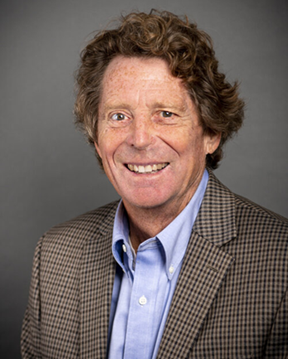
One of my jobs on campus was dealing with classrooms. I frequently relied on Bill MacKenzie’s expertise in his work as energy coordinator and utility engineer to maintain appropriate temperatures throughout the campus. Can you imagine a more challenging job than trying to keep the entire campus comfortable (and happy) in their classrooms and offices! He was always gracious, kind, and very helpful. He has had a terrific career and a great story to share.
Brown: Where were you born and where did you grow up? What is special about the place you grew up?
MacKenzie: I was born and raised in Louisville, Kentucky. When I was 12, we moved to a community just outside of Louisville called Anchorage, which was a unique community with its own K-ninth grade school. The school was public but functioned much like a private school in that there was one class per grade. Many of the families in the community had horses and there were horse trails that ran along the sides of the roads so that we could ride our horses throughout. Volunteers in the community ran a Pony Club for the children in which we learned how to care for our horses and how to ride them with the goal of being able to enter horse shows. It was a beautiful and wonderful place to grow up. My wife, Crystal, lived in Anchorage, went to the same school as I did, but was a year behind me, and as far as we remember, we never spoke to one another during our years together at the school. We went to different high schools, so we did not connect together until after college.
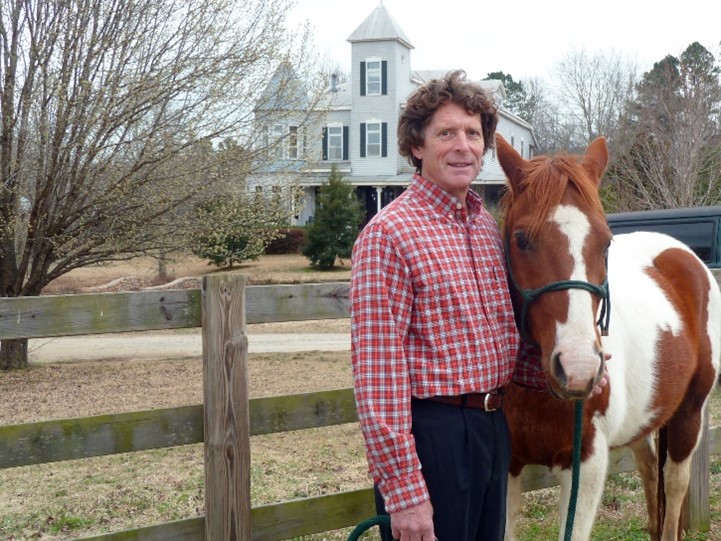
Brown: Please talk about your parents and any siblings.
MacKenzie: My family was one of those special families that did everything together. I can honestly say that I respected my parents far more than any peers and their opinion of me mattered greatly. The love of my parents provided wonderful security and a very strong sense of worth. I was spared the heartache of bad decisions or harmful behavior, not because I was particularly wise or good but because I had really good parents.
My father was a successful attorney, but I do not remember him ever coming home late from work so that he missed supper with us. He brought work home with him that he worked on while we did homework, but family was a value to both of my parents. It was my mom, though, who was the spiritual leader of the family, leading us in devotions and prayer at night. One of my earliest memories is of my mother explaining to me that my purpose in life was to “glorify God and enjoy Him forever.” It was something that I accepted with childlike faith and which guided me as a child.
I have an older sister, Anne, with whom I was good friends (and whom I now truly enjoy being with), though I became rather self-absorbed as I moved into high school so that I can’t say we were close friends during my teen years. We didn’t fight and were nice to each other, we just didn’t have any deep conversations. But then I didn’t have any deep conversations with anyone during those years. Anne and her husband, Dave, now live in College Station, Texas. We are looking forward to traveling with them next January to Israel.
I also have a younger brother, Doug, who looked up to me. We got along wonderfully because we both thought I was a great guy. I am thankful to say that I now consider him one of my closest and best friends and he has grown up to be his own man, having outgrown the worship of his older brother, and having had a fruitful career as a missionary in Brazil.
Brown: What’s the most important lesson you learned from your parents?
MacKenzie: As I said earlier, my parents gave me a strong sense of who I was and the confidence to be different for the right reasons. My mother instilled in me a sense of being called by God for a purpose greater than my own. Both of my parents were poor during the Depression and education was the way out of it for them so they both placed a very high value on education, on not wasting anything, and on working hard. I am a “do-it-yourselfer”, and I came by it honestly.
Brown: When you were a kid and someone asked you what you wanted to be when you grew up, what was your response?
MacKenzie: I am by God’s design an engineer. I have always been fascinated with how things work. My father would bring me home old clocks and other things so I could take them apart. While other boys were learning about different sports heroes, I was reading books about different inventors. I didn’t know the world of an engineer, so I would have said that I wanted to be an inventor. I was also attracted to the lives of explorers and was disappointed as I learned how little of the world was left unexplored.
Brown: Where did you go to school?
MacKenzie: I went to a public high school in Louisville, Kentucky. I then attended Purdue University where I got my BS in Mechanical Engineering.
Brown: Talk about your high school experience. Did you play sports, join clubs?
MacKenzie: After surviving the awkward years of junior high school, I thoroughly enjoyed my high school years. I rode horses, sang in a school group known as Singout Louisville, played tennis, and had a small but supportive group of friends. I would have been glad to continue on as a senior indefinitely.
I was small and slow and yet tried to play football. I was not even issued a uniform when I first showed up for the freshman team. My sister was friends with the equipment manager of the team and persuaded him to put together a uniform for me out of left-over pieces. Before the season began, I broke two fingers and was thus out for that season. That winter, I dropped a set of weights on my hand and crushed it, putting me in a cast for a second time. It was actually quite serious and there was a brief period during which the doctors were not sure I would keep the hand. The next fall I broke my wrist in practice and my mother said I was through playing football. So, I took up wrestling and found my sport. I loved wrestling and did relatively well. It became my dream and ambition to win the state title in my weight class. However, I made a critical mistake in the semifinal match of the tournament and lost in the last 26 seconds. I was devastated. It was the first time I had failed in something I had set my mind to do. It set me up, though, to be ready when the call came, to follow Jesus who offered me something and someone much bigger to live for.
Brown: Did you have a curfew?
MacKenzie: Seems like I was supposed to be home at 11 p.m. I dated a really sweet girl who lived in the adjoining county. We had met at summer church camp and went to different high schools. I would visit her on Saturdays. The way I remember it, we would watch a movie at her house which would end at 11 p.m. and then I’d drive the 15 minutes home to my house, always ending up getting home late but never in any real trouble for it.
Brown: Tell us about your college experience. What was your favorite/least favorite class?
MacKenzie: Mostly because of my parents’ emphasis on school and grades, I did well in high school. I enjoyed math and science and tolerated everything else. I had a cousin whose husband taught at Purdue and after someone suggested that I ought to go there if I was interested in engineering, my family visited in the fall of my senior year. It was a typical rainy, windy midwestern day. There was little to entice me to go there other than the family connection, but I applied and was excepted on early admission. As I said earlier, I was having enough fun as a senior in high school that I was not particularly interested in or concerned about college, so I accepted their acceptance and did not apply anywhere else.
Purdue was and still is a big school. My freshman year, 1971, was the last year that the freshmen were expected to wear “beanies” and had a mild sort of hazing from the upperclassmen. It was also the first time that I was on my own and away from the support of my family. I was homesick and lonely, and my soul was empty. I had failed in the one really big thing on which I had set my heart. I now wanted to be accepted by someone. Even with a good upbringing, I could have gone either way to get that acceptance. By God’s wonderful grace, though, the only other person I knew at Purdue from my high school, an upperclassman who had been a friend of my sister, came by my room and invited me to a Bible study. It was there that I met people who spoke of Jesus as though they knew him personally and were seeking to follow him. I was confronted, not by them but by the Spirit of God, with the hypocrisy of my life. I was not living what I said I believed. I had been living for myself and for my own glory, not God’s. Shortly after arriving at Purdue, I responded to Christ’s call to follow Him and began a four-year journey of growth, discovery, and new life.
I also got a very good engineering education. I loved my engineering and math classes. I am one of those peculiar people who enjoyed word problems in school. I even now do physics and calculus problems for fun. I took as many of my liberal arts classes pass-fail as I could so I could spend as little time as possible on them. One of the electives that I took that I really enjoyed, though, was a plant propagation class. We met at the greenhouse and learned how to propagate various plants. I found that I enjoy horticulture and even today enjoy planting and growing things.
One other significant and life-shaping part of my college years was my summer job during those three summers. I worked on a guest ranch in Colorado which had a unique way of communicating the love and life of Christ to the guests who visited. The vision of the ranch owner was to have Christian college students work as the wranglers, waitresses, maintenance crew, kitchen staff, and cabin girls in such a way that people began to ask what made them different, thereby winning the opportunity to explain the hope that is in us. The staff I worked and lived with during those three summers and the lessons learned from the ranch owner shaped my vision for how to live among and serve others. Much of what we have done with the International Guest House (IGH) has been influenced by my time at the ranch.
Brown: What was your first job and what were your responsibilities?
MacKenzie: As I approached graduation from Purdue I wrestled with a dilemma. I could not at the time make a connection between my engineering and the sense that God had a purpose for my life that centered around honoring Him and seeking to build his kingdom. My engineering ability was clearly a gift from him but the people who had invested in my life spiritually were primarily people who had left the work force to do “full time” Christian work. I had learned during my time at the ranch that I had a particular gift with and interest in working with children and teens. Therefore, when I left Purdue, I came back to Louisville and worked at my home church as the youth worker. It was an incredible experience. God blessed my life and my time with the young people of the church and the neighborhood around the church. A number of those young people remain dear and close friends.
I enjoyed my work with the youth so much that I thought that perhaps I should be a schoolteacher, and maybe a wrestling coach. I therefore enrolled in the University of Louisville at which I got a Masters of Teaching degree and a teaching certificate. I also got involved in a campus ministry there with an organization called the Navigators. It was at a Navigator Bible study that I was reunited with Crystal, the girl from Anchorage School. She had met the Navigators at the University of Kentucky, where she studied Nursing. Over a period of four years, we fell in love, sensed a similar leading and calling to serve Christ in ministering to students, and decided to get married. The Navigators invited us to go on staff with them and move to Nashville to get training. They also encouraged me to get a full-time engineering job which I did. I worked for a large consulting firm as a mechanical engineer. After two years in Nashville, we were asked to move to Oxford to take over the Navigator work here at the University. We arrived in 1982 with a one-year-old daughter, Ashley. The University was looking for a mechanical engineer to fill a newly formed position, Energy Coordinator. I applied and was hired with the understanding that I would probably be leaving in four or so years.
Brown: What advice would you give to your 20-year-old self?
MacKenzie: It’s a bit hard to remember what my 20-year-old self was like. I had a big view of God and a growing desire to live fully for Him. I would not change either of those. I would tell myself to get a better theology of work, to embrace the wonderful truth that God is honored by my using the engineering gifts he gave me even as he is honored by my telling others about him.
Brown: Did you have a mentor who influenced your career choice?
MacKenzie: There was little doubt that I am an engineer. And as such the career choice was pretty easy. I had a very good chemistry teacher in high school, so I entered Purdue thinking I wanted to be a Chemical Engineer. But a couple of mechanics classes and Organic Chemistry convinced me otherwise.
Brown: Tell us how/when your Ole Miss “story” began? Who hired you? Tell us about your interview. How long did you work at Ole Miss?
MacKenzie: The State of Mississippi had just passed a law requiring every state institution to have a designated energy coordinator and to reduce their energy consumption by 10%. The University, therefore, was looking for an engineer to fill that position. It was God’s providence that I moved to town with the right credentials and at the right time. Mr. John White, the director of the Physical Plant interviewed me. I told him why we had moved to Oxford, that I expected to be going overseas in four years as a missionary, that I was only available half time to work for him, but that I would do my very best during those 20 hours per week. Mr. White told me they would like to have someone full-time, so I worked for a few months for a consulting engineer in Sardis who needed some part-time help on some projects he was doing in north Mississippi. Mr. White called me a couple of months later and told me they could not find anyone qualified to work full time and offered me the job. I worked four years as a part-time employee and then switched to full-time. In all, I worked 25 years as the University’s Energy Coordinator and Associate Utility Engineer.
Brown: What did you know about Ole Miss before you accepted a position here?
MacKenzie: I knew very little about Ole Miss before coming here. Though Louisville, Kentucky is technically in the “South,” it does not have the same southern culture as Ole Miss. In 1982 Ole Miss and Oxford were much smaller than they are today. We quickly learned to love the town and the people. One favorite tradition that represents for me the charm of small-town Oxford is the open house around the Square the day after Thanksgiving. And we loved participating in the annual Christmas parade. Our children and now our grandchildren have ridden their horses in the parade and waved at all their friends as they pass them by.
Brown: What was the most rewarding/most challenging of your responsibilities?
MacKenzie: I worked to reduce the University’s energy consumption with conviction and passion. By nature, and by upbringing I dislike waste. Meeting the State’s goal of a 10% reduction was gratifying. On the other hand, having people call me to complain because they were too hot or too cold was tiresome. I mellowed over the years and we were able to back away from the shortened schedules for heating and cooling of the buildings and the more conservative set points.
As the University grew, we expanded the centralized Energy Management System (EMS) so that I was able to monitor and control heating and cooling systems throughout the campus. I enjoyed the design and programming of that system. I also really enjoyed working with the maintenance crews, especially in teaching them how to problem solve the components of the heating and cooling systems.
Brown: You have been involved with International Guest House (IGH) for many years. Please tell us about that.
MacKenzie: We came to Ole Miss to take over an existing Navigator ministry to Ole Miss students. The Lord began to bring some wonderful international students to our Bible studies, so that after four years we had more Malaysian Chinese attending than we did Americans. We took a trip to Malaysia in the summer of 1986 to explore the possibility of moving there, possibly using my engineering as a way to be allowed to live in the country. At the end of the summer, we returned home with the conviction that we would be more effective staying here and ministering to the students the Lord was already bringing to us. It was at this time, too, that I transitioned to working for the University full-time. As Crystal and I discussed how to most effectively minister to the students while working full time and raising a family, the concept of a ministry home in which students could live with us developed. It was not an original idea. In fact, as part of my Navigator training in Louisville, I had lived in a ministry home. But someone encouraged us, if we were going to do this long term, to have separate housing for the students, apart from our own home. So, we began to think in terms of a ministry complex. We formed a non-profit organization which we called the International Guest House, bought 20 acres of land, and began to build.
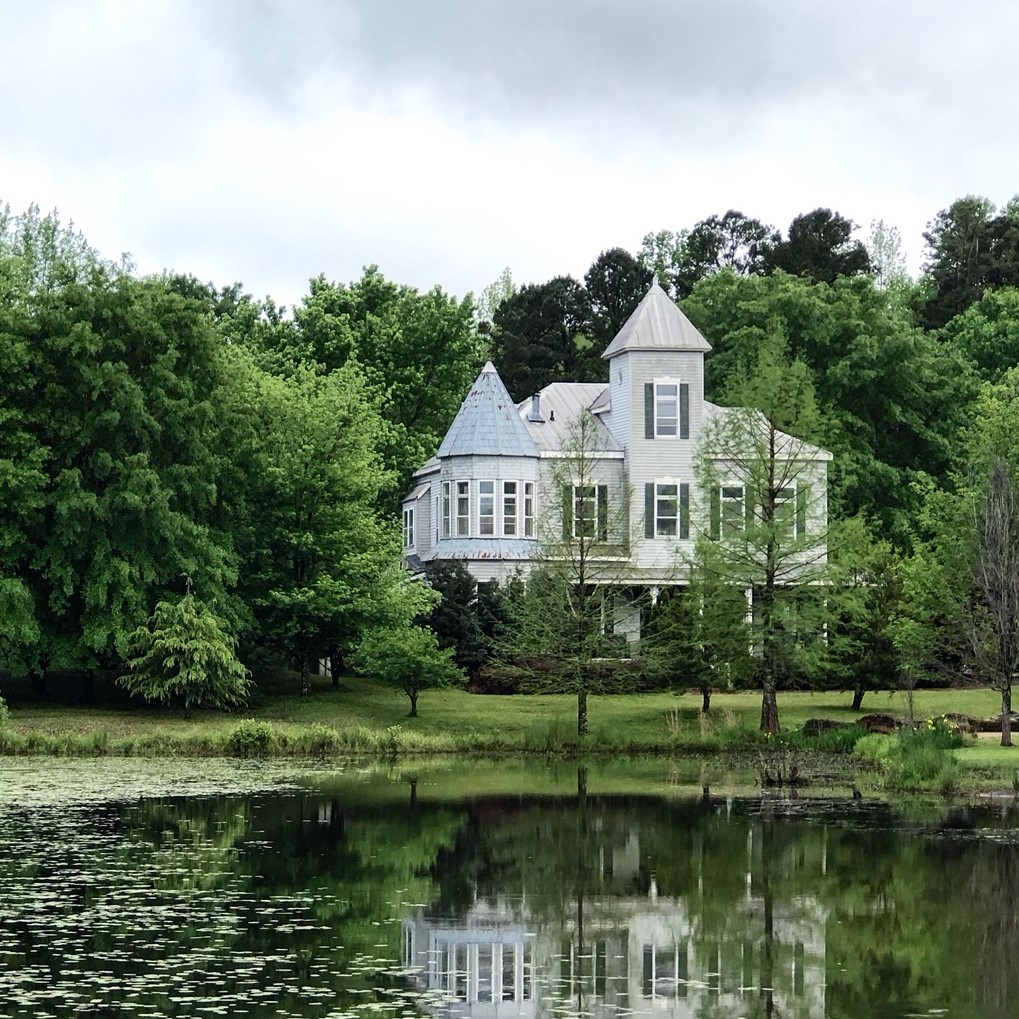
We built a four-bedroom cottage first, then built the barn to house the horses we were starting to acquire, and then began on the main ministry home. We moved into the main house in 1992 with it unfinished and had 4 international guys move into the cottage. That was the beginning of a wonderful and amazing life of providing a “home away from home” for students from all over the world. We renovated the loft of the barn in several different phases so that it now has two apartments in it, and the third floor of the main house has an additional two-bedroom apartment.
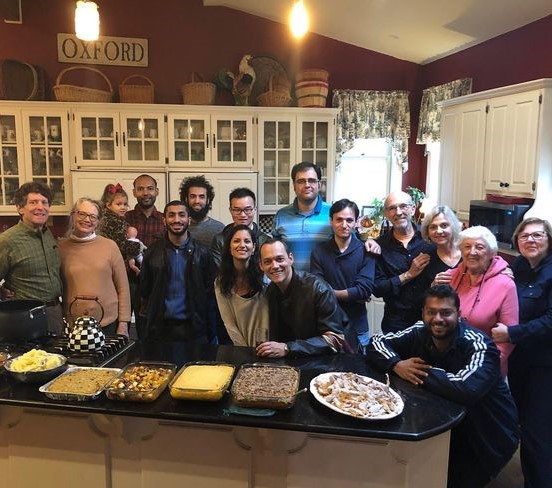
Our desire is to have students live with us who want to live in a Christian home environment, whether they are from a Christian background or not. It has been our privilege and rich blessing to have numerous students from many different backgrounds be a part of the IGH family. We have also been blessed to have many American students become a part of our ministry team. They have built friendships with international students and have in very tangible ways been the aroma of Christ to people who have never had the chance to know Him.
Brown: What three words best describe you?
MacKenzie: How about a verse? John 15:16. “You did not choose me, but I chose you, and appointed you that you should go and bear fruit and that your fruit should abide.
Chosen
Appointed
Fruitful
All by God’s grace.
Personality-wise, I am a do-it-yourselfer who loves to build things and loves to be with children, especially my grandchildren.
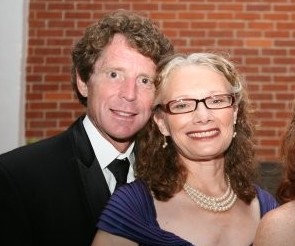
Brown: If you could go back and change one decision in your life, what would it be?
MacKenzie: I cannot think of anything I would like to change. I was given very wise and good counsel on what is worth living for and was blessed to be able to follow it.
Brown: What makes you angry?
MacKenzie: Child abuse.
Brown: What makes you happy?
MacKenzie: Being with my grandchildren. I told them last night that it doesn’t take anything spectacular or unusual. A very normal day with very common activities with them fills me with a great deal of joy and happiness. I am incredibly blessed and full.
Brown: Tell us about your children and grandchildren. Where are they and what are they up to these days?
MacKenzie: Our daughter, Ashley, grew up riding horses, playing tennis and pretty much every other sport available, and enjoying being with friends. She and her doubles partner won the high school state tennis tournament their senior year. She attended Ole Miss where she earned a Business degree, worked for a year and a half on the ranch in Colorado at which I had worked, worked for a couple of years in Nashville, and then returned to Oxford where she met and married Casey Rogers, a man for whom we are exceptionally thankful. She and her family now live just up the hill from us and thus we are intimately involved in the lives of our grandchildren. Annalee is 10, Cade is soon to be 8, Wilson is 6, and John Clark is 4. Following the family tradition, they are enjoying riding horses, playing sports, and adventures in the surrounding woods.
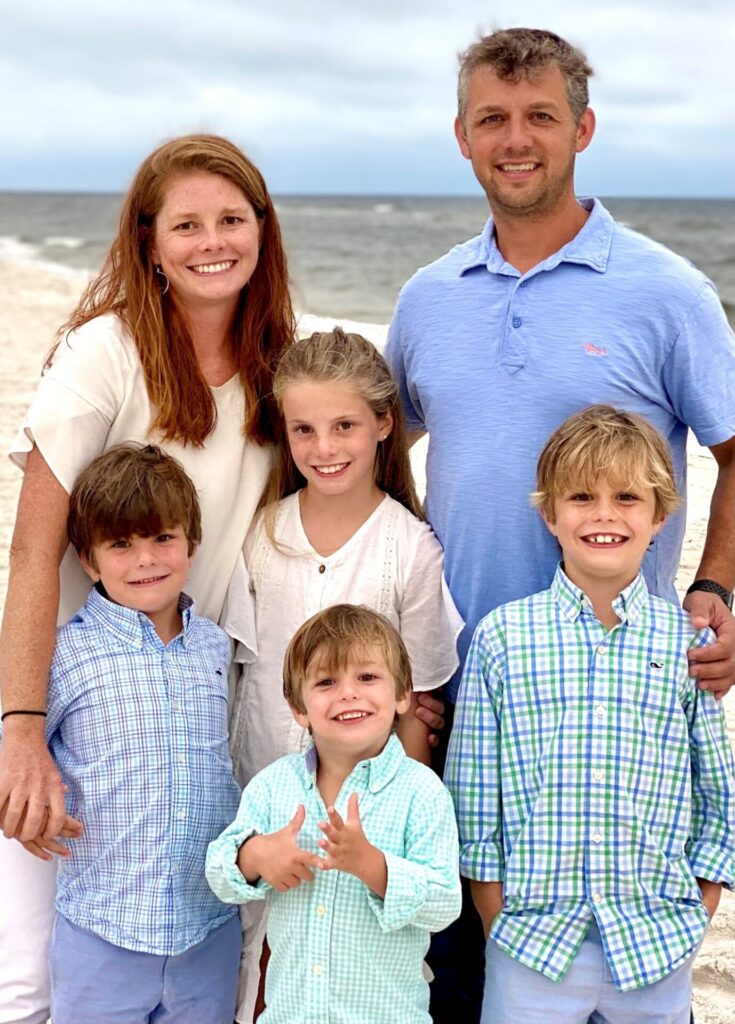
Annalee (10), Cade (soon to be 8), Wilson (6), and John Clark (4)
Our son, Will, also grew up with a full schedule of sports and outdoor activities. While in high school, he heard a presentation on how West Point, the country’s military academy, developed leaders. He was attracted to the ideal that West Point represented. He thus pursued and obtained an appointment to West Point where he excelled in both academics and leadership. He also met Jen, a fellow cadet, who is now his wife. Jen completed her requisite years of service and is now a full-time mother while Will is continuing with his career as a Major in the army. They have three children, Quint, 10, Lily, soon to be 7, and Timmy, soon to be 5. They will be moving this summer from Fort Hood, Texas to the Washington D. C. area.
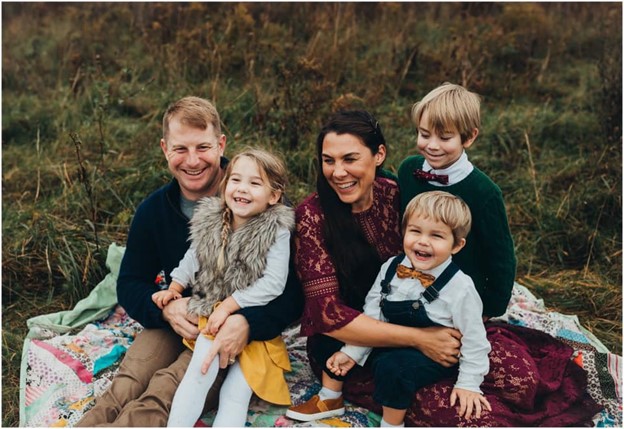
Brown: What accomplishment are you most proud of to date?
MacKenzie: Certainly, we are extremely thankful and amazed at what the Lord has put into place which is the International Guest House. This is His doing. We were the vessels through which he worked but we are common vessels. He has done uncommon things.
Brown: How do you “re-charge?”
MacKenzie: I am an introvert by nature. I enjoy working by myself on projects. I also thoroughly enjoy reading good novels. I am now pursuing writing novels that attempt to depict people’s journey to a new life in Christ’s kingdom (two of which are currently available on Amazon with a few more in the pipeline). I would also like to help people be attracted to a life of faith and faithfulness through good novels.
Brown: Do you have a favorite quote? What is it and why is it your favorite?
MacKenzie: There are many wonderful quotes that have provided guidance and direction for my life, but I suppose the one that comes to mind as a favorite is by Jim Eliot. “He is no fool who gives what he cannot keep to gain what he cannot lose.”
Brown: If your life were a book, what would the title be?
MacKenzie: My first novel has the title “A Peculiar Grain of Wheat.” It comes from John 12:24. “Unless a grain of wheat falls into the earth and dies, it remains alone; but if it dies, it bears much fruit.” I would like to live that truth. Dying to myself allows Christ to live in me. And such a life is going to be peculiar. So, I’d be glad to adopt that title for my own.
Brown: What’s your favorite way to waste time?
MacKenzie: So, at the risk of sounding overly pious or self-righteous, one passage that resonated with me early on in my journey with Christ was Ephesians 5:15. “Look carefully then how you walk, not as unwise but as wise, making the most of the time because the days are evil.”
I am still learning how to relax and enjoy being still and I know that there is a very good place for rest and relaxation, but wasting time is not something I am inclined to do.
Brown: Where’s your favorite vacation destination and why is it your favorite?
MacKenzie: Because of my time at the ranch, I love being able to get back to Colorado. I love the majesty of the mountains, the smell of the pine in the air, the clearness of the sky, and the joy of clean streams cascading down a mountain side.
Brown: Do you have any hobbies?
MacKenzie: I enjoy tennis and golf. I love building things. In fact, I’ve decided that I have a lifetime of building projects left to do.
Brown: What’s a project you plan to do “when you have the time?”
MacKenzie: I have a list that I expect to be working on until I can no longer work. I’d like to build another 4-bedroom cottage at the IGH and hope to do so in the next couple of years. And I’d like to build a greenhouse at my house to pursue some of that horticulture that I learned a long time ago at Purdue.
Brown: What are some things that you have marked off your bucket list?
MacKenzie: My life has been so full and rewarding that I am not aware of things that I hope to get to do or see before I enter into the unimaginable glory of God’s full presence.
Brown: What do you want your legacy to be?
Mackenzie: My children and grandchildren.
Bonnie Brown is a retired staff member of the University of Mississippi. She most recently served as Mentoring Coordinator for the Ole Miss Women’s Council for Philanthropy. For questions or comments, email her at bbrown@olemiss.edu.
